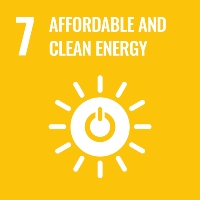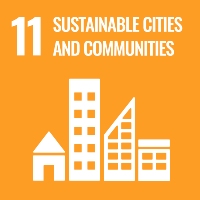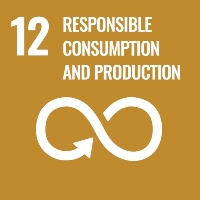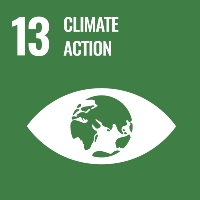We aim to embed the principle of sustainability in new building construction, as well as the refurbishment and long-term maintenance of existing buildings. We also aim to ensure any development is done in accordance with the highest possible environmental standards.
Our requirements for sustainable construction
Our contractors are required to consider environmental sustainability across every stage of construction works, to ensure resource efficiency in design and operation and limit negative environmental impact. Any project exceeding £100,000 in value or that of an environmental nature is required to complete our environmental sustainability project tracker.
The tracker outlines the sustainability targets projects are expected to meet. External consultants such as Environmental Sustainability Advisors are appointed to manage the targets throughout our large-scale developments.
We also have policies in place to ensure the minimisation of disposable items (Word Doc, 233KB). These extend to the outsourcing of services, including construction.
Zero carbon fund
To meet the University’s zero carbon target by 2038, £136-million of funding has been allocated to zero carbon essential works.
These essential works started in 2023 and building decarbonisation projects are already in the pipeline:
- Phase 1 zero carbon buildings including Booth Street and Dalton Ellis are due for completion in 2023/24.
- A further four buildings planned in Phase 2 include Zochonis, Humanities Bridgeford Street.
- Phase 3 buildings are yet to be agreed. Zero carbon targets for these projects are contained with provision of air source heat pumps, photovoltaic panels, new roofing systems, glazing and internal insulation systems.
- It is anticipated that 5,000 tonnes of carbon will be saved by 2026/27 from these projects.
Find out more about our commitment to sustainable construction and refurbishment in Our Sustainable Future (PDF, 4.7MB).
Delivering sustainable buildings
The construction of Engineering Buildings A and B, as part of the wider Campus Masterplan, is an example of our commitment to creating more sustainable buildings on the University campus. A 2023 audit (PowerPoint, 558KB) of the construction highlighted that 97% of the demolition waste was recycled, 95% of waste was diverted from landfill and the buildings saw a 40% carbon reduction in the first year.
In addition to carbon and energy efficiencies, the Masterplan also focuses on increasing the quality of cycling facilities for our colleagues and students, connecting our researchers to data from projects, building on existing brownfield sites, sharing innovations and best practice with our partners and supplying a healthy environment that provides for people and nature.
Sustainability strategy
Read Our Sustainable Future, the University's Environmental Sustainability Strategy, in full (PDF, 4.7MB).
Read more
Valuing nature
Discover how we maintain our campus to benefit the health and wellbeing of all who use it.
Find out more
-
Goal 7
-
Goal 11
-
Goal 12
-
Goal 13




